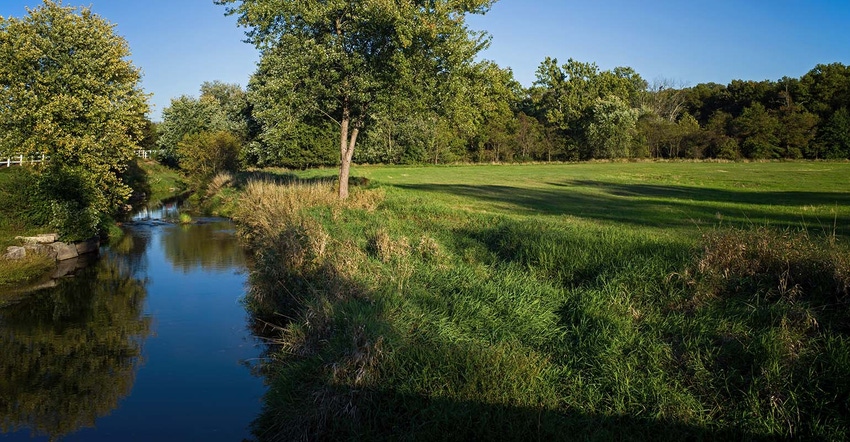
Last week U.S. District Court Judge Rosemary Marquez, a former local and public defender in criminal cases, handed down an enormous legal decision which will impact virtually all who own land which may have a stream running through it. Judge Marquez not only overturned President Trump’s Waters of the United States rule. The judge said “…remanding without vacatur would risk serious environmental harm.” (Vacatur means void).
Between June 2020 and April 2021, the judge claimed the U.S. Corps of Engineering issued over 40,000 determinations. Of these aquatic resources the Corps determined 76% were “non-jurisdictional”. Landowners in the West will be hit particularly hard by Judge Marquez’s decision. Intermittent and ephemeral streams will now most likely be determined to have an impact on waters they flow into.
Judge Marquez sits on the U.S. District Court for the District of Arizona. She was appointed by President Obama and served as a public defender in Pima County, Arizona, and as an assistant federal public defender. Her nomination for a judgeship was kicked back once and only when the late Sen. John McCain indicated he would support Ms. Marquez did she receive a U.S. Senate vote.
Fifteen Senators voted against her confirmation and the only notable case she has handled is the Trump-era WOTUS rule.
Who is behind the case? Pascua Yaqui Tribe, Quinault Indian Nation, Fond du Lac Band of Lake Superior Chippewa, Menominee Indian tribe of Wisconsin, Tohono O’Dham Nation, and Bad River Band of Lake Superior Chippewa sued EPA and the Corps of Engineers over President Trump’s WOTUS rule. A number-of trade associations, such as the Arizona Cattle Feeders Association and the Arizona Farm Bureau, intervened
Even EPA, under the Biden Administration, did not oppose “remanding” the Trump WOTUS rule.
Judge Marquez reviews the U.S. Supreme Court’s decision Rapanos v United States which was issued in 2006. Judge Marquez relies on Justice Kennedy’s concurrence, a single opinion, as controlling Supreme Court precedent. Instead of relying on the “significant nexus” test, President Trump’s EPA relied on the four Justices who reasoned that not all waters should be under EPA’s and the Corps’ jurisdiction.
The Biden EPA wants to revise and/or replace President Trump’s definition of WOTUS. President Biden, on the other hand, says his administration will listen to the science and protect the environment.
Judge Marquez, being an expert on water and agriculture, believes that the Trump administration did not listen to or review the scientific literation on the connections between tributaries and downstream waters.
All water runs downhill
Many years ago, this blog indicated that all water runs downhill. In fact, EPA published a report entitled “Connectivity of Streams and Wetlands to Downstream Waters”. This is known as the so called “Connectivity Report”. It stated what we all know: that water runs downhill.
The fact is, the Clean Water Act is not supposed to regulate all waters of the United States. For example, non-point source waters, such as agricultural storm runoff, are not regulated by the Clean Water Act. Judge Marquez believes that not reviewing the Connectivity Report is arbitrary and capricious
The Court, on page 8 of the Opinion, claims EPA's action under President Trump was “…arbitrary and capricious in violation of the Administrative Procedure Act…[and] entirely failed to consider an important aspect of the problem, offered an explanation for its decision that runs counter to the evidence before the agency,… [and] is so implausible that it would not be ascribed to a difference in view or the product of agency expertise.”
Judge Marquez said “…the agency’s [EPA] construction is arbitrary, capricious, [and] manifestly contrary to the statute.” EPA and the Corps want to control your property. More litigation is in store because of this judge’s decision.
The opinions of the author are not necessarily those of Farm Futures or Farm Progress.
About the Author(s)
You May Also Like




